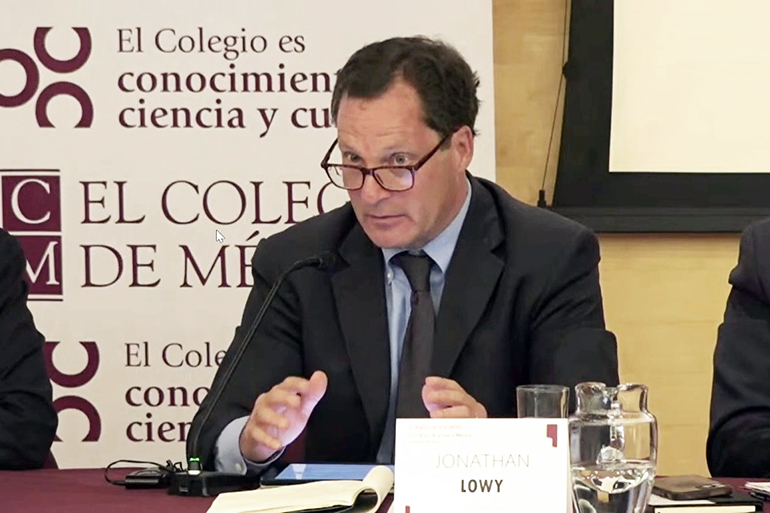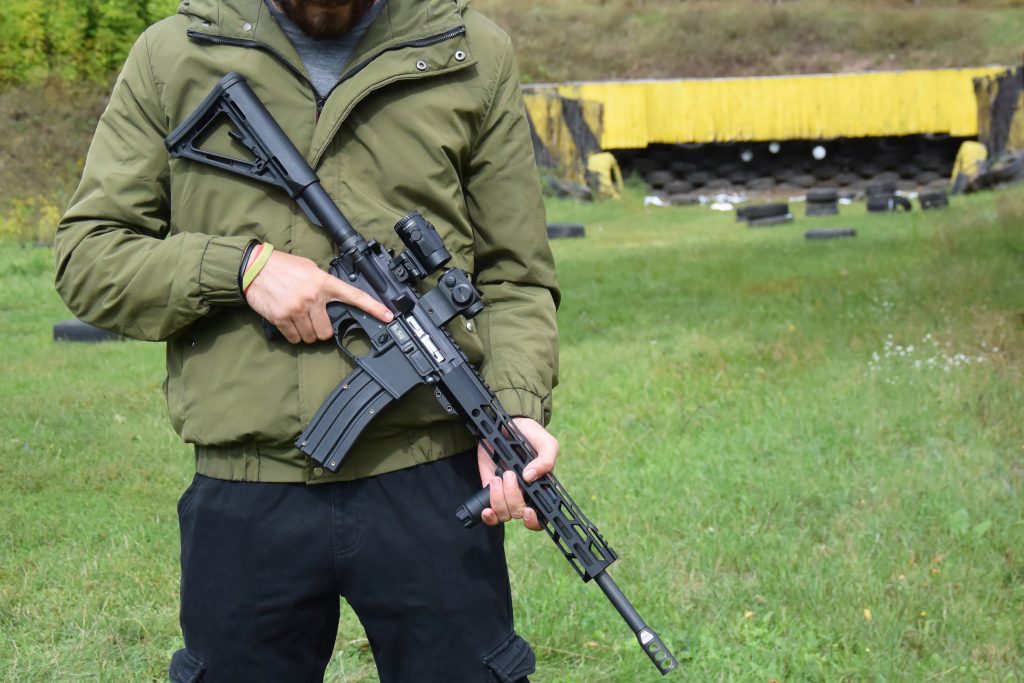
On January 22, a panel for the U.S. District Court of Appeals for the First Circuit revived a lawsuit brought by the Mexican government against prominent members of the U.S. firearms industry. The case seeks to shift blame for Mexico’s woeful crime problem from its lack of competent governance to the American gun industry and their customers, to the tune of $10 billion.
In resuscitating the suit, Joe Biden and Barack Obama-appointed Judges William Kayatta, Gustavo Gelpi, and Lara Montecalvo, endorsed an end-run around Congress’ clear intent with the Protection of Lawful Commerce in Arms Act (PLCAA) and undermined a long-established principle of tort law.
Back in August 2021, the gun control group Brady (formerly Brady Campaign Against Gun Violence and Handgun Control, Inc. before that) teamed up with the Mexican government to bring the case in the U.S. District Court for the District of Massachusetts. The suit argued that the U.S. federal court in which it was filed should ignore both U.S. law and the Second Amendment and instead rule against the defendants under the laws of Mexico.
This attack on the U.S. gun industry and gun owners represented a new low for domestic gun control advocates. That Brady would ally itself with a foreign government that has become virtually synonymous with corruption proved just how detached the gun control movement is from the values and traditions that define America.
In 2022, the domestic anti-gun advocates working on the case spun off a new gun control organization, Global Action on Gun Violence, to attack the U.S. gun industry on behalf of foreign governments. An October 2022 Politico item reported, “Earlier this month, Global Action on Gun Violence quietly filed paperwork with the DOJ under the Foreign Agents Registration Act, with [Jonathan] Lowy and Elizabeth Burke, who was also an attorney at Brady, registering as agents of Mexico.”
On September 30, 2022, the Federal District Court in Massachusetts dismissed the foreign lawsuit in its entirety. In doing so, Chief Judge F. Dennis Saylor IV, a George W. Bush appointee, explained, regarding the suit’s attack on the PLCAA . . .
The PLCAA unequivocally bars lawsuits seeking to hold gun manufacturers responsible for the acts of individuals using guns …. And while the statute contains several narrow exceptions, none are applicable here.
This Court does not have the authority to ignore an act of Congress. Nor is its proper role to devise stratagems to avoid statutory commands, even where the allegations of the complaint may evoke a sympathetic response. And while the Court has considerable sympathy for the people of Mexico, and none whatsoever for those who traffic guns to Mexican criminal organizations, it is duty-bound to follow the law.
In reversing Judge Saylor, the First Circuit panel rejected the jurist’s sound logic.
The PLCAA was enacted to codify longstanding a principle of tort law that gun control advocates sought to erode. U.S. tort law has long held that a person or entity cannot be held responsible for a third party’s criminal acts. Simply put: people are responsible for their own behavior, not the behavior of others.
Therefore, if a violent criminal acquires and misuses a firearm to commit a crime, it is the criminal who is liable for the conduct, not the company that produced the firearm. Just like how Chevrolet isn’t responsible for the actions of drunk drivers.
Gun control activists have been trying since the 1980s to convince courts to abandon this rule when it comes to companies that manufacture, import, and sell firearms. Even though these suits were dubious, this weaponized litigation threatened to bleed America’s arms industry dry or to force settlements that would have restricted Americans’ otherwise lawful access to firearms.
Congress therefore responded in 2005 by passing the Protection of Lawful Commerce in Arms Act (PLCAA). This law, passed with bipartisan support, codified the common law rule regarding liability for third-party criminal acts with respect to the firearms industry specifically and protected an industry subject to political and ideological attack from being subjected to extraordinary liability.
Notably, the PLCAA does not protect the gun industry from suits where a manufacturer or seller’s illegal conduct was the proximate cause of the injury giving rise to the suit. Anti-gun organizations have increasingly tried to pervert this straightforward exemption to effectively undo the entire PLCAA.
Here, the First Circuit panel endorsed Mexico’s allegations that U.S. gun manufacturers are aiding-and-abetting criminals in Mexico. The fact that these industry members comply with the mountain of federal regulations pertaining to firearm manufacturers isn’t enough to insulate them from liability according to the court. That these entities might know that, despite their compliance with federal law, some of their firearms may wind up in Mexico, is enough for the case to go forward.
The absurdity of these allegations was laid bare when the court’s opinion acknowledged, “the complaint does not allege defendants’ awareness of any particular unlawful sale.”
Worse, the court endorsed Mexico’s allegation that members of the firearms industry “design and market their guns in such a way as to make them attractive to the illegal market, and that they benefit financially as a result.” In summarizing Mexico’s claim, the opinion noted . . .
Mexico alleges that defendants not only design their guns as military-grade weapons; they also market them as such. Defendants’ marketing materials depict their weapons in use by or in proximity to military and law enforcement personnel and contain other references to military and law enforcement.
What the court failed to acknowledge is that these designs and marketing are chiefly attractive to law-abiding Americans exercising their Second Amendment rights. Anyone with even a passing interest in firearms understands that the qualities that make firearms useful for professional applications, such as the military and law enforcement, are the same qualities law-abiding gun owners prize in their personal firearms. That some criminals might also value these features should be irrelevant.

Consider the AR-15. According to a 2022 Washington Post-Ipsos poll, six percent or about 16 million Americans own an AR-15. That’s a strong indication that law-abiding citizens enjoy owning duty-grade firearm designs. That’s aside from the legitimate argument that the AR-15 is the quintessential Second Amendment-protected arm.
The obvious implications of Mexico — and the court’s “logic” — is that Americans shouldn’t have access to well-designed high-quality firearms suitable for duty applications because some number of criminals may find such firearms useful for nefarious purposes.
Moreover, evidence came recently that undercuts Mexico’s claims that U.S. gun manufacturer conduct has anything to do with the lengths to which Mexico’s criminal cartels will go to acquire weaponry. On January 22, the Associated Press reported, “Mexico’s army is finding belt-fed machine guns, rocket launchers and grenades that are not sold for civilian use in the United States.” Mexico’s Foreign Relations Secretary said, “The (Mexican) Defense Department has warned the United States about weapons entering Mexico that are for the exclusive use of the U.S. army.”
Citing an example of non-civilian weaponry ending up in cartel hands, the piece reported, “In June, Defense Secretary Luis Cresencio Sandoval said five rocket launchers had been found in the possession of the Jalisco New Generation cartel, four were seized from the rival Sinaloa cartel and three more seized from other cartels.”
Given that Mexican cartels have the ability to acquire rocket launchers, grenades, and belt-fed machine guns, a cynic could get the impression that the Mexico lawsuit is more about curbing law-abiding Americans’ rights than protecting peaceful Mexico from malign U.S. interests.
With gun control advocates and some courts attempting to undo the PLCAA, hope for a proper interpretation of this landmark statute likely rests with the U.S. Supreme Court. Further, gun owners would do well to note the breakdown of the presidents who appointed the judges involved in this case. As President Obama liked to remind Americans, “elections have consequences.”
This article originally appeared at nraila.org and is reprinted here with permission.

